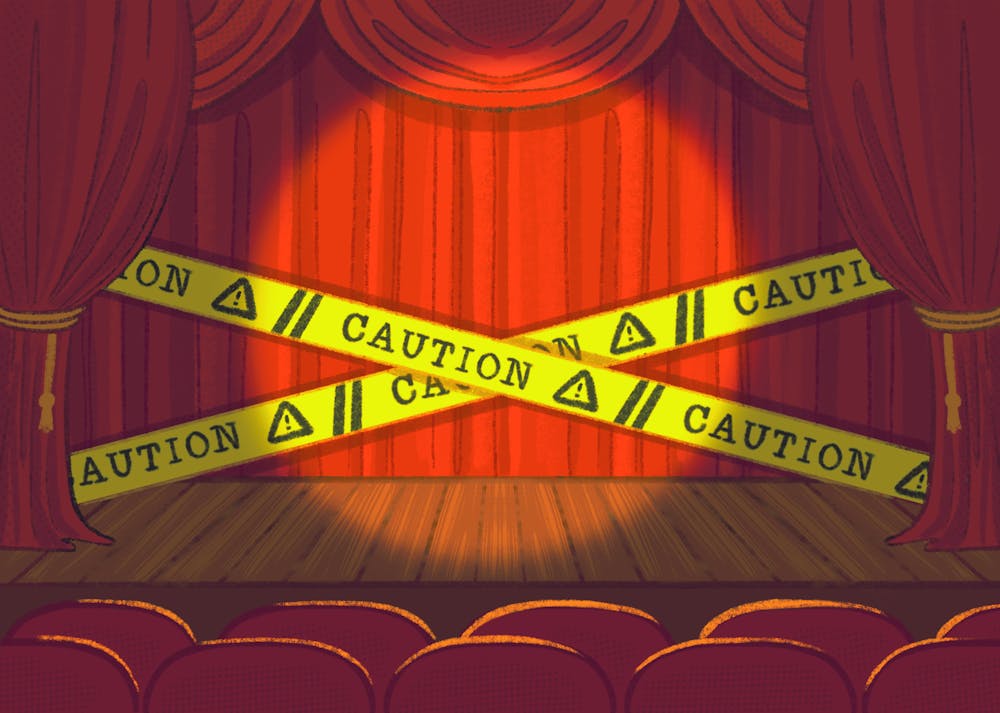It’s a scary thought for most artists, brought on by a scenario that few creators could have predicted. Amid the growing concerns over COVID-19, Broadway was forced to shut down.
Within just a few short days, companies around the world followed suit. Gone were the upholstered seats and dimmed lights of theatrical spaces. Suddenly, artists and companies steeped in theatrical tradition had to find a way to adjust.
One such company is Zao Theatre in Apache Junction, Arizona. Located at the intersection of Broadway Avenue and Ironwood Drive, this local group has faced its own share of transitional roadblocks.
Having had to cancel their spring production of "Little Shop of Horrors," The company began working to create new and improved live performances for the fall season. This included new safety measures in place, including reduced audience capacity, face-covering requirements and requesting actors get tested prior to performing. But with that transition came other obstacles.
“It’s also a challenge to keep your heart in the game, because it’s very easy to get discouraged,” said Mickey Bryce, Zao’s artistic director. “Especially if you fail to realize that, whatever you do, somebody won’t like it.”
Zao recently found itself in the center of controversy surrounding its upcoming production of "The Sound of Music."
Up until now, the company’s only staged two productions, each with smaller casts: "Winter Wonderettes," which opened in December, and "Songs For a New World," which opens at the end of January. However, for some, the large cast required for "The Sound of Music" poses too great a safety risk.
Despite the backlash, Bryce insists that Zao is taking the pandemic seriously and is implementing safety measures to minimize exposure onstage. On why it was important for the show to be done live, Bryce emphasized the human aspect of theater, arguing that it’s what audiences are hungry for.
“Maybe online theatre has a new importance,” Bryce said. “But my guess is that theatre was designed to be live, and if you give up that live part of it, you’re always wishing for that.”
However, other creators are embracing the new digital opportunities for theatrical creation. From Zoom experiences to virtual reality performances, the digital landscape seems ripe for experimentation.
The most famous of these projects being that of the viral TikTok musical based on Pixar’s "Ratatouille," which culminated in a charity concert that raised nearly two million dollars for The Actor’s Fund.
The change to digital creation can be jarring for many artists, but for others, such as ASU assistant professor Robert Farid Karimi, the future is too uncertain to know when things can return to normal.
“I don’t know how we’re going to go back to what we did before, exactly as we did it,” Karimi said.
For Karimi, an interdisciplinary artist whose work brings together humor and play in order to address difficult issues, the pandemic served not only as a disruption but also as an opportunity for evolution.
Prior to the shutdown, Karimi was hard at work on their interactive performance entitled "Swimming Pool Party," in which audiences worked together to solve puzzles pertaining to water in order to confront swimming ability disparities based on race.
Although originally intended for a live production in fall 2020, restrictions led Karimi to work with their collaborators to translate the piece to new mediums, including a children's book and a virtual reality experience.
Currently, Karimi teaches a class on post-pandemic theatre at ASU, where they not only instruct students on how best to utilize digital tools, such as Zoom, but also on how to create new opportunities and take risks, rather than think about what can’t be done.
“What a great time to start figuring it out as students, rather than being broke, in New York, figuring that out,” Karimi said, referring to the uncertainty that comes with the pandemic.
Reach the reporter at nmdelga3@asu.edu and follow @DelGoada on Twitter.
Like The State Press on Facebook and follow @statepress on Twitter.
Continue supporting student journalism and donate to The State Press today.




